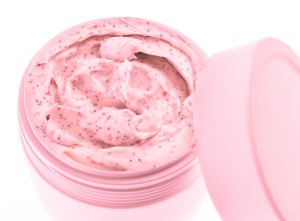This week, the state of Illinois became the first jurisdiction in the world to ban plastic microbeads from personal care products (PDF). Moving forward, companies are prohibited from selling body scrubs and facial exfoliators that consist of the plastic spheres. Environmentalists are celebrating the news that would see the plastic beads gone by the end of 2019.
A handful of other states, including California, New York and Ohio, are attempting to follow the same path and Great Lake mayors are demanding action to ban the tiny beads that range in size from 0.0004 to 1.24 millimetres, which is too small for filtration by wastewater treatment plants. Minnesota is currently studying the matter and will come to a decision in the near future.
Research has found that the beads can soak up toxic pollutants, such as motor oil and pesticides, similar to a sponge. Environmentalists are concerned that since they are as minuscule as fish eggs then they could make their way into the food chain through birds, fish and mammals as they mistakenly eat them – research has shown creatures misidentify the foods and accidentally consume them.
 Several studies have caused some European states to call for bans. The Dutch parliament, for instance, is urging a European ban on plastic microbeads. It has yet to gain any traction, but with bans currently moving ahead in California and New York, then it could prompt European leaders to take action.
Several studies have caused some European states to call for bans. The Dutch parliament, for instance, is urging a European ban on plastic microbeads. It has yet to gain any traction, but with bans currently moving ahead in California and New York, then it could prompt European leaders to take action.
“Banning microbeads will help ensure clean waters across Illinois and set an example for our nation to follow,” said Illinois Democratic Governor Pat Quinn in a statement. “Lake Michigan and the many rivers and lakes across our state are among our most important natural resources.”
Illinois Democratic State Senator Heather Steans, who co-sponsored the bill, believes it will create a nationwide initiative to protect environmental areas by ridding personal care products of these elements.
“I’m optimistic that we’ve started a nationwide movement to protect not just the Great Lakes, but other bodies of water with high concentrations of microbeads,” said Steans in a statement
Although scientists and environmentalists are pleased by the legislative action, some are concerned about the delayed deadline that could add even more microbeads into the water in that timespan.
“The later date means more microbeads are going down the drain before we’re really taking the measures that need to be taken,” Sherri Mason, a chemist and associate professor at the State University of New York, told CBC News.
In response to the latest news, companies that have packaged plastic spheres into their personal care products have vowed to start removing them over the next few years. Unilever has said 2015, Colgate-Palmolive wants it done this year, Procter & Gamble promised by 2017 and Johnson & Johnson and L’Oréal have yet to provide a timeframe.
In the meantime, if a customer doesn’t wish to use microbeads then they should be wary of products that have either polyethylene and/or polypropylene in their list of ingredients.



